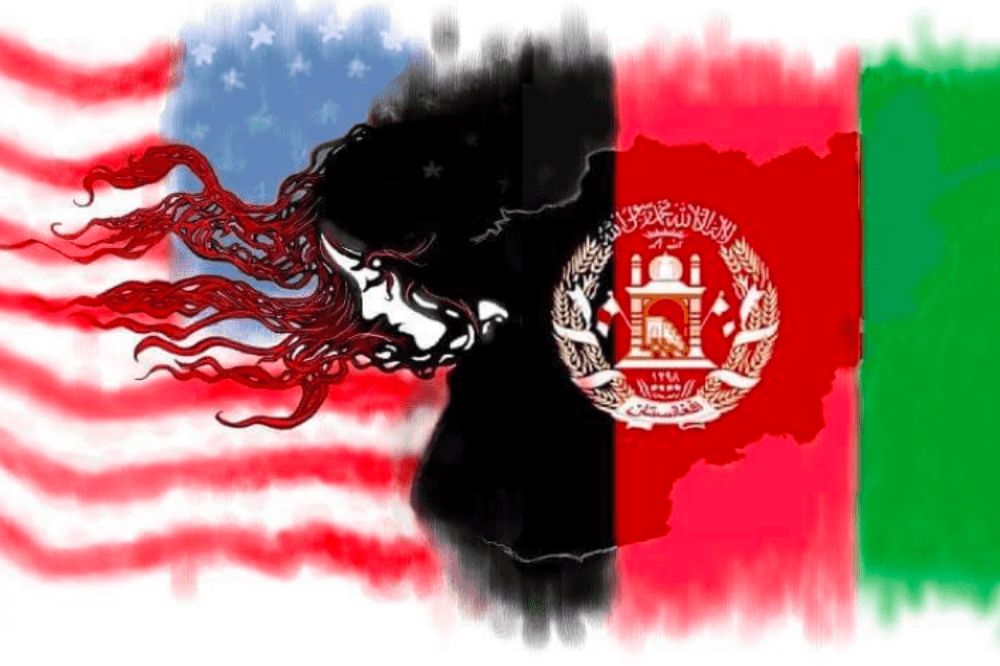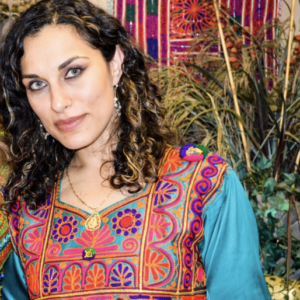
PEP Member Pens Memoir “Authenticity in America”
Shahira Qudrat Shares Her Life As An Afghan-American and Muslim Woman
PEP member Shahira N. Qudrat published the book “Authenticity in America” in 2019 about her dual identities as an Afghan-American and proud Muslim woman. We interviewed her about her memoir and the important themes that reverberate throughout, including immigration, feminism, religion, discrimination, harassment, and living as a Muslim woman in America post 9/11.
Explain the statement “We all have stories. What is yours?” near the beginning of your book.
The opening to my book was very intentional. Living in the U.S., much of our history and the stories we grew up with were focused on colonialism and a sense of “othering.” The stories we (I) learned in the classrooms were not stories that I could necessarily relate to because of the “global citizen” mindset I grew up with. Therefore, I am intentionally calling on multi-ethnic women to be bold and share their stories, even if our conservative gender/cultural norms don’t encourage that.
The “Authenticity Zone” concept  plays a large role in your book. Why is it important to share this concept with first- and second-generation American women?
plays a large role in your book. Why is it important to share this concept with first- and second-generation American women?
Growing up in a binary state of Afghan traditions or always seeing a choice as “right vs wrong” or “good vs bad” kept me from taking risks and chances as a teenager and young adult. The constant state of self-judgement in relation to what others saw as “best” for me was hindering my growth as a human being. Many people from more gender conservative/gender traditional backgrounds (I have heard from many Middle Eastern women and Asian women on this) are constantly trying to make peace with this state, and it is exhausting. When I associated myself to an “authentic state” it was a freeing experience and I often learned from this growth mindset because I refused the set of binary outcomes I was socialized with.
Why is America as a “melting pot” an inaccurate metaphor?
First of all, I hate food metaphors, but that is another story! On a more serious note, the concept of an element “melting” scientifically or visually indicates a process of solid transitioning to a state that makes it unrecognizable from its original state. I don’t see this metaphor as adding value at all, because it prompts me to think that my differences should transition into someone else’s definition of being “American.” This strips away my uniqueness, my history, and the lens of my ancestors. We didn’t “melt” into the Indigenous American state, did we? While I understand the intent is to bring about unity in a common American identity, we must remember that these unique backgrounds make up “who we are.” When you “melt” this away, you strip away the identity that makes me “ME.”
Why do you feel that it’s your duty to diversify the definition of a Muslim woman?
Diversity helps us create inclusive narratives, whether we are talking about social groups or religious groups. It is my duty to be authentic and confident in my religious beliefs and practices, and that is my duty to myself. I cannot separate myself from my faith, and I don’t want to. However, that choice belongs to me. When we are more tolerant of other narratives, we become less judgmental of others. It is not my job to define what it means to be a Muslim woman for someone else and this is the message I hope comes across.
At one point in your life, you wore a hijab. What would you like people to know about a Muslim woman’s choice to wear a hijab?
I talk extensively in the book about the purpose of hijab. The main point of wearing a hijab is a physical demonstration or commitment to one’s Creator and that one’s behavior and dress is as modest and humble on the inside as it is on the outside. While I am in great support of women who choose to wear the hijab, I currently choose to express my devotion in other ways. My Islam or my faith lives in the way I am compassionate toward my loved ones. It comes out in the way I allow destiny to guide my path. My Islam comes out in the way I choose to be inclusive and my support of social justice initiatives.
You say that true feminism is about increasing the narratives of women by creating an environment where women are encouraged to speak up, and all genders are partners in progress of virtue and equality. For men reading your book, how can they increase the narratives of women?
Creating an environment for women to speak up and tell their stories requires “space” if you will. Not physical space, but social space where women are encouraged to tell their stories in an authentic manner. Women are looking for ways to connect in this changing world where technology is prevalent and the evidence rise in social identity groups in the past three-four years. This is a critical social step in creating space for changing the narrative for women, and for documenting fresh voices and stories that have not been on record before. For men reading the book, I ask that you do one simple thing: fully support the women in your life to pursue their dreams and ambitions. Our world is FULL of problems to solve, and if the voice of half those people (females) are not heard or elevated, we will be further from a world with virtue and equality.
How did you become involved with WFCO and why did you join PEP?
I learned about WFCO while I was doing personal research on organizations that support women in Colorado a couple of years back. I wanted to learn more about the organization so I attended an informational session after work one day and just fell in love with Lauren Casteel’s vision and dedication to creating a better place for ALL women in Colorado. I lean very much on the research funded by WFCO and I believe in the positive outcomes it creates for its beneficiaries. I made a pledge to become a PEP member because I believe all people should “put their money where their mouth is” and truly offer support where they are able. I am privileged to be connected to such a wonderful group, and look forward to staying connected to WFCO for years to come!
Why are you excited for this year’s luncheon?
Clearly, this year’s luncheon is being headlined by two amazing women, Noor Tagouri and Maysoon Zayid. Not only are they influential women in their respective fields, but they also happen to be Muslim. They certainly don’t fit the “mold” of being Muslim women, and I am proud of the diversity and relevance they offer as individuals. I am so excited to hear them speak and I am bringing all my Muslim friends (men and women)!
“Authenticity in America” is available on Amazon.

